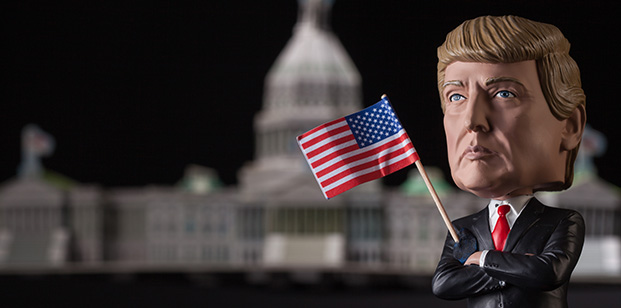Trump could reverse the recent market rout, but shows little inclination to back down.
- The stock market rout is relatively shallow and could reverse if there is some retreat on tariffs
- However, early signs are not promising, with global leaders failing to secure lower tariffs despite concessions
- There is a risk of real economic damage, which markets would find more difficult to ignore
It has been an unsettling week in markets. There is some evidence that the sell-off is relatively shallow, with trading platforms reporting buyers eager to come back. However, any turnaround would require an easing of Trump’s tariff regime, and there is no evidence that he is willing to give ground in response to market weakness.
It is possible that the sell-off could reverse relatively quickly in the right circumstances. For example, there appear to be some buyers waiting on the sidelines to pick up bargains. The share price for both Apple and Nvidia is down 30% for the year to date. For investors that have been waiting to buy into these technology giants at a better price, this may look like an opportune moment. Trading platforms report plenty of trading activity around these mega-caps.
AJ Bell reports “Buy trades were double the volume of sell trades (in the aftermath of ‘liberation day’) so a bigger proportion of customers are seeing this as a buying opportunity and are repositioning their portfolios towards investments they feel are safer or have been hardest hit, in the expectation of a recovery in the months and years ahead.”
Equally, markets appear to be willing to change direction on news of any retreat. Stock markets rallied on Tuesday on rumours of a 90-day postponement to tariffs. This later turned out to be ‘fake news’, according to the White House, but it showed that the markets could be swayed by a retreat.
However, any turnaround would require a change of heart from Donald Trump. That is looking increasingly unlikely. It had been assumed that countries around the world would agree a series of minor concessions, Trump would claim victory and the problem would evaporate. However, the early signs are not good.
Even ‘friends’ of the US, such as Benjamin Netanyahu have failed to secure any meaningful concessions after meeting with the President. The Israeli Prime Minister committed to eliminating the deficit with the US, but did not secure any lowering of the country’s 17% tariffs in return. This does not bode well for the next world leaders in line.
It doesn’t help that the premise of the tariffs and their execution do not match. Tariffs are ostensibly a way to deal with the US being ‘ripped off’ by nations that impose high tariff barriers on US products, but can then sell freely into US markets. However, the tariffs are based on a formula that takes no account of barriers imposed by other countries, and looks only at a country’s relative trade deficit with the US.
The market damage could be reversed, but doesn’t look like it will be. With tariffs now coming into effect, real economic damage is now a possibility. Markets may find it more difficult to come back from that.









